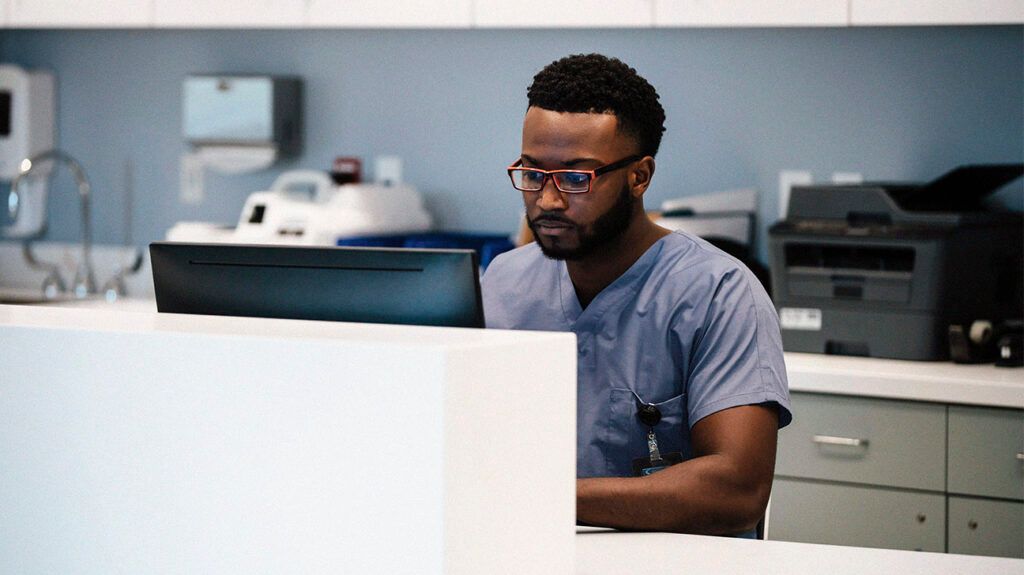A person’s poop may be black due to eating certain foods, such as licorice, taking iron supplements, or gastrointestinal bleeding. If people have blood in the stool, they may benefit from speaking with a doctor.
Various foods can turn a person’s stool black, including blueberries, licorice, and blood sausage. Certain medications, including iron tablets and the indigestion medication bismuth subsalicylate (Pepto-Bismol) may also turn stool black.
If someone has recently consumed any of these and their stool is black, there is likely no cause for concern.
However, bleeding in the gastrointestinal tract can also cause black, tarry stools. If this occurs, people may notice additional symptoms, including blood in the stool, abdominal cramps, and fatigue.
This article explains six potential causes for black stools, including how to prevent it and when to seek help.

Angiodysplasia involves
It is unclear why angiodysplasia happens, but it can cause bleeding and blood in a person’s stool, which can make it look black and tarry.
Treatments may involve procedures such as argon plasma coagulation ablation or endoscopic clips and band ligation to stop the bleeding.
According to National Institute of Diabetes and Digestive and Kidney Diseases (NIDDK), people may have blood in the stool or black, tarry stools if they have benign tumors or cancerous formations in the
A benign tumor is a tumor that is not cancerous. Whether they are benign or cancerous, tumors can weaken the gastrointestinal wall and result in bleeding.
Tumors in the gastrointestinal tract
Ulcerative colitis is an inflammatory condition that
Other symptoms may include:
The cause of ulcerative colitis is unclear but genetics may play a role. Doctors
Polyps are small growths that form in the large intestine. They are
Colon polyps can cause blood in the stool, giving it a black, tarry appearance. However, they typically need to be very large to cause bleeding.
A doctor may suggest surgery to remove the colon polyps.
Issues with the esophagus may cause bleeding, which can turn a person’s stool black and tarry. The
Liver issues can cause esophageal varices, which are enlarged veins in the esophagus. Treatment will
If someone experiences gastroesophageal reflux frequently, they may have gastroesophageal reflux disease (GERD).
The
If an ulcer forms in a person’s stomach, this can cause bleeding which may make the stool black and tarry.
The
As well as blood in a person’s stool, symptoms include:
- dull, burning pain in the stomach
- bloating
- burping
- vomiting
- having a low appetite
- losing weight
If a doctor thinks that medications are causing stomach ulcers, treatment may involve stopping the use of these pain relievers. A doctor may prescribe other medications to treat alternative causes, such as bacterial infections.
If a person’s stool is black because of what they have eaten, the color will eventually change with the diet. However, there is no reason for people to avoid foods that have this effect if they are not experiencing any other symptoms.
If bleeding in the gastrointestinal tract is responsible for black, tarry stools, a doctor will need to diagnose the exact cause of this. Many gastrointestinal issues are treatable.
Signs that someone should speak with a doctor include abdominal pain, dizziness, and fatigue. People may require urgent medical help if they experience any of the following:
- vomit that looks like coffee grounds
- fainting
- shortness of breath or difficulty breathing
- symptoms of shock, including
- confusion
- fast heart rate
- paler-than-usual skin
- sweating
- cold hands and feet
Doctors can diagnose the underlying cause of gastrointestinal bleeding and provide suitable treatment, which should return a person’s stool to their usual color.
People may be able to prevent black stools by avoiding certain foods, such as black licorice and blood sausage.
It may not be possible to entirely prevent all potential causes of gastrointestinal bleeding that can lead to black stools. However, a healthcare professional
- avoiding or quitting smoking
- limiting alcohol consumption
- increasing dietary fiber
- avoiding certain medications, such as nonsteroidal anti-inflammatory drugs
People can speak with a doctor if they have concerns about their risk of gastrointestinal bleeding.
If a person’s stool is black, the likeliest reasons is that they have eaten certain foods. Some people may have black stools due to gastrointestinal bleeding.
If someone has no other symptoms and suspects that foods are to blame, there should be no cause for concern. However, if they notice blood in their stool or experience any other symptoms, they should speak with a doctor, who can determine the cause.
Treatment may depend on the underlying cause of gastrointestinal bleeding.
